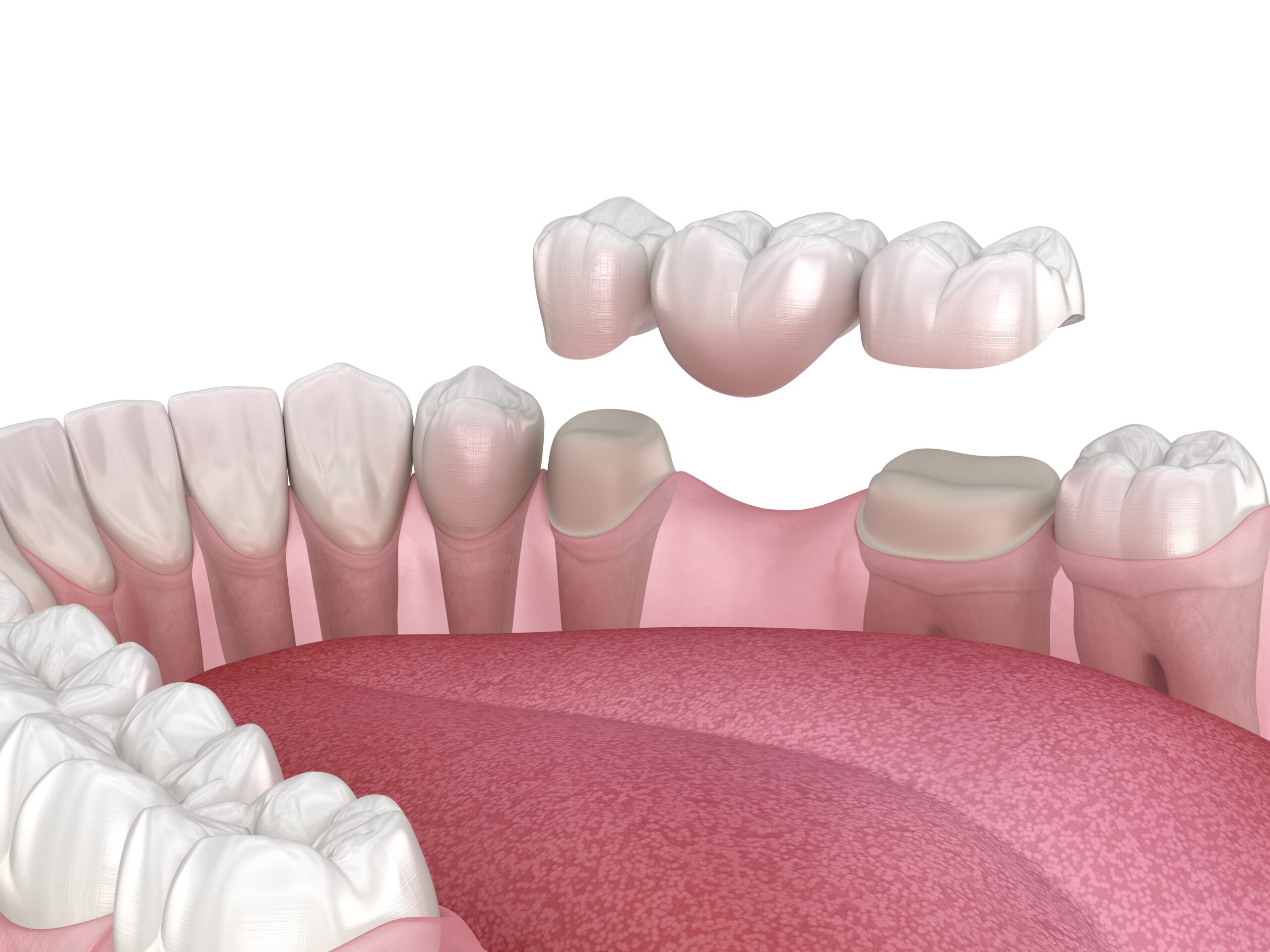CROWN AND BRIDGE
Restorative Dental Care in Merrylands
Crown And Bridge
Our crown and bridge treatment begins with a thorough examination to assess the condition of the affected teeth. If a tooth is broken or missing, a crown or bridge may be recommended to restore functionality and aesthetics. The process involves 2-3 visits to custom make crowns to a high standard and quality, including tooth preparation, scans, and the final placement of the restoration, ensuring a precise fit and natural appearance.
PFM Crowns
These crowns have a metal base covered with a layer of tooth-colored porcelain. They offer strength from the metal base and a natural appearance from the porcelain.
Ceramic Crowns
These crowns are entirely made of porcelain or ceramic material, providing a highly aesthetic option. They are often preferred for front teeth due to their lifelike appearance.
Metal Crowns
Made from various metal alloys such as gold, platinum, or base metal alloys (e.g., nickel-chromium), metal crowns are known for their durability and strength. However, their metallic appearance makes them less desirable for visible teeth.
Composite Crowns
These crowns are made from a tooth-colored composite resin material. While they can be less expensive than other types of crowns, they may not be as durable and long-lasting.
Zirconia Crowns
Constructed from zirconia, a strong and durable ceramic material, these crowns offer excellent strength and aesthetics. They are a popular choice for both front and back teeth..
Frequently Asked Questions
Which crown is best for me?
Your dentist will help you choose the best crown based on several factors, including your budget, aesthetic preferences, whether the tooth has undergone a root canal treatment, and if you have a habit of grinding your teeth. All options, including the steps involved and the cost, will be thoroughly discussed with you before the procedure begins.
What to expect when getting a crown ?
Initial Consultation: Your dentist will first examine the tooth and may take X-rays to assess its condition. If the tooth is severely decayed or damaged, a root canal might be necessary before placing the crown.
Tooth Preparation: During your first appointment, the dentist will numb the area and reshape the tooth to create space for the crown. An impression or digital scan of the tooth will be taken to ensure a precise fit.
Temporary Crown: A temporary crown may be placed over the prepared tooth while your custom crown is being made in a dental lab. This protects the tooth and allows you to function normally in the meantime.
Final Crown Placement: At your second visit, the temporary crown is removed, and the permanent crown is placed. Your dentist will ensure it fits properly, feels comfortable, and blends with your natural teeth before cementing it into place.
Aftercare: You may experience mild sensitivity or discomfort after the procedure, but it should subside in a few days. Proper oral hygiene and regular dental visits are key to maintaining your new crown.
How can I maintain my crowns and bridges?
To ensure the longevity of your crowns and bridges, it’s important to follow a few maintenance tips:
Practice Good Oral Hygiene: Brush twice daily and floss around the crown or bridge to prevent plaque buildup and gum disease, which can compromise the support of the restoration.
Avoid Hard and Sticky Foods: Chewing on hard foods like ice or sticky candies can damage or dislodge your crowns.
Use a Nightguard if Necessary: If you grind your teeth, wearing a nightguard can prevent excessive wear on your crown and bridge.
Regular Dental Check-ups: Visit your dentist regularly to check the condition of your crowns and ensure your surrounding teeth and gums remain healthy.
By following these steps, you can help your crowns and bridges last for many years, maintaining both function and aesthetics.
What is the long-term outlook for Crowns?
The lifespan of a dental crown typically ranges from 10 to 15 years, depending on factors like the quality of the crown, how much of the original tooth was damaged, and your oral hygiene habits. With proper care, crowns can last even longer. Regular brushing, flossing, and dental check-ups are essential for maintaining the crown’s integrity. Additionally, habits such as avoiding hard or sticky foods and addressing teeth grinding can prevent premature wear. The more the original tooth was broken down, the more important it is to ensure the crown is well-maintained to avoid further complications.